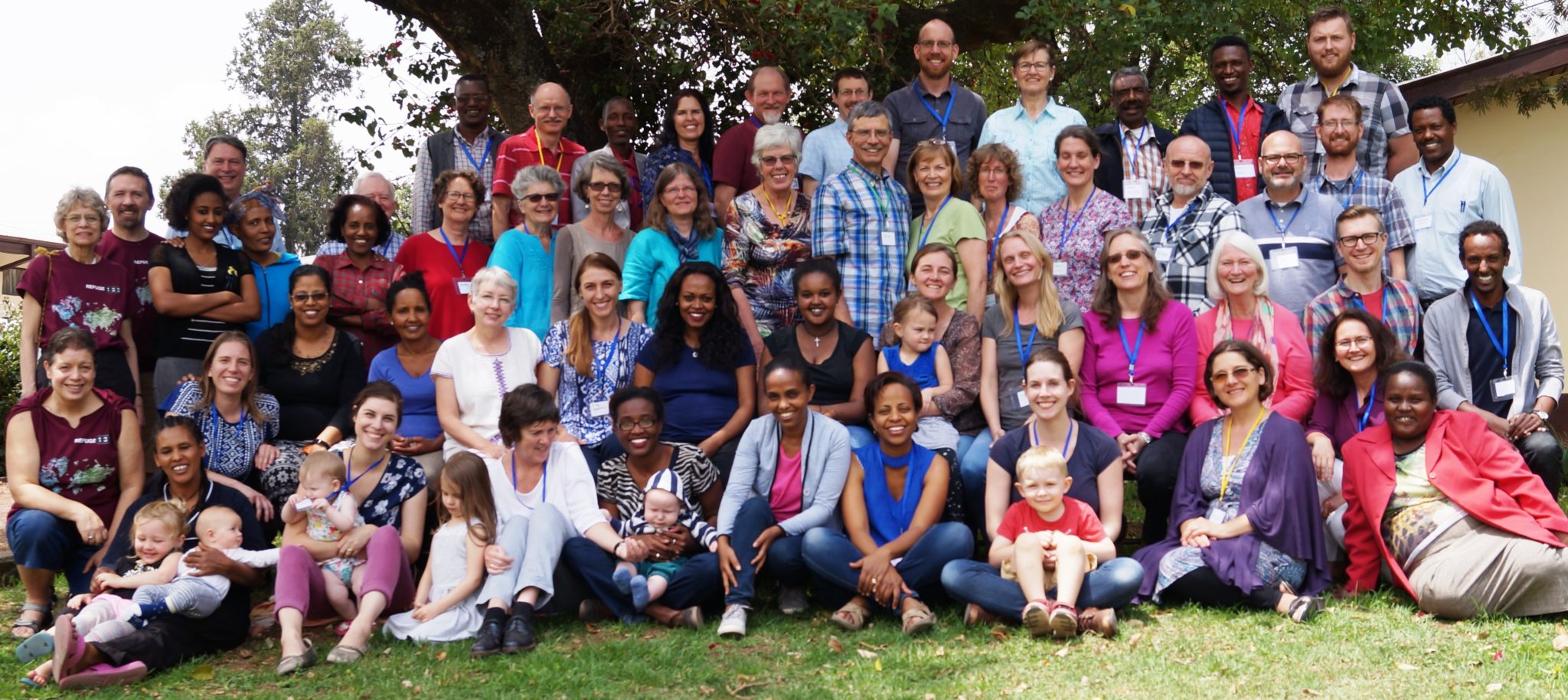When COVID-19 arrived in Ethiopia and many things closed down, I didn’t feel that I could continue living alone in my apartment in Addis Ababa, where I serve as an RCA mission partner. I needed some extra family support. I asked Rose and her husband, Bruce, friends from church who were serving in Addis with Mennonite Central Committee (MCC), if I could move into their guest room. The family agreed to take me in. I became a “COVID-19 refugee,” as my host “mother” Rose described me in a recent blog post where she reflected on the nine months I spent living with them.
In her reflections on my unique personality and extra needs, Rose focused especially on my diagnosis of Asperger Syndrome, an Autistic Spectrum Disorder also known as “high-functioning autism” due to a greater capacity for independent functioning in society than “classic” autism allows. Even so, I do occasionally need some extra support in rockier times, as my time with Rose and Bruce showed.
Despite the extra support I may need at times, I have learned how my background and personality, Asperger Syndrome and all, make my ministry serving with Wycliffe Bible Translators/SIL in partnership with RCA Global Mission a good fit. I’ve come to understand how being an “Aspie” even provides me with unique skills that make me an invaluable part of the mission team.
Grace across cultures
A huge advantage of being an Aspie missionary is that people on both sides of the ocean are much more forgiving of social blunders that I may make—something that I learned at a young age. Asperger Syndrome is, at its core, a disability in the giving and receiving of nonverbal communication and in the understanding of social norms, which I’m told comes almost instinctively to neurotypicals. Learning the “rules” of social interaction is a messy and uncomfortable process for an Aspie that can often result in a lot of tears and offended people. We’re perceived as having the capacity to be normal but frequently don’t act or communicate in prescribed and expected ways.
In my position, I receive a lot more grace than there would be for most Aspies. In Ethiopia it’s perfectly obvious that I am not an Ethiopian, so no one is surprised or offended if I act strange or abnormal to them. It would be stranger if I happened to fit in perfectly as a member of the local culture! When I come to America, it seems to me that I am also given much more grace in social blunders if it’s known that I’m “that guy who lives in Africa.” The source of the friction may have nothing to do with culture and everything to do with having Asperger Syndrome, but the missionary label gives others a reason and excuse that they can understand and accept, where they would not have that same grace in cases where they expect me to be “one of them.”
A preference for stability
Aspies also tend to be exceptionally resistant to change, showing a high preference and need for routine and stability. In one sense, the mission field is a strange career choice for such a person, as overseas mission is riddled with transition through constant personnel changes as missionaries arrive and leave, as well as a much higher likelihood of government regulations changing that may jeopardize continued service in the country. But on the other hand, the mission field has been familiar to me my whole life. My parents, Peter and Patty Ford, have been RCA missionaries since before my birth. I was born in Oman, raised in Sudan, moved to Ethiopia in my 12th-grade year, and my parents are still serving in Lebanon.
Viewed in this light, serving as a missionary myself was an easy and stable career choice. My life experience took away a lot of the challenges to adapting to a cross-cultural living experience. My change-resistant personality also means that I have a very high commitment to long-term mission service, desiring to remain in my position in Ethiopia for the foreseeable future. Given the huge amount of time and resources required to bring a new missionary to the field (in my case it was a six-year process from the time I first conversed with a Wycliffe recruiter to my first day at the SIL Ethiopia office), long-term commitment is a valuable asset to missions that greatly increases efficient stewardship of resources.
The list goes on
Other common Aspie traits that I bring to the mission field that no one else can match include: accuracy, orderliness, organization, an ability to see relationships in data clearly, a love of working with data that others might find boring, a high capacity for keeping track of many details and making sure that things are followed up on … The list could probably go on. People with Asperger Syndrome tend to have above-average intelligence, and this serves me well working with a highly academic mission organization like Wycliffe Bible Translators. For one thing, the Ethiopian government requires me to have a Master’s degree to be allowed to work in the position I have—but this is commonly encouraged in the Wycliffe/SIL realm anyway for enhancing staff expertise. My perfectionistic nature goes well with our organization, which emphasizes high-quality products, be they New Testaments or mother-tongue textbooks.
Compared to most other positions in SIL Ethiopia, my position as Special Projects Implementer (whatever that means!) is exceptionally diverse in terms of the eclectic variety of jobs that I may be responsible for: library, archiving, databases, contributing to SIL’s research guide of world languages, preparing receipts for services SIL renders to language projects, publications editing, managing and monitoring several office financial systems, and projects for the board.
I think I could be considered almost irreplaceable in several of those domains. I’m able to juggle all of those quite well, and that sort of role fits my orderly personality well. I don’t think I will ever be a leader and I never want to be, but my Asperger’s personality makes me a valuable asset in supporting our leadership and staff in a wide variety of ways so that more people can access the Word of God in their heart language and come to know God more deeply through God’s Word.
Do I sometimes need a bit of extra support as someone with Asperger Syndrome, compared to a neurotypical? Yes. I don’t expect that I will ever be quite as completely independent as most adults. But the support is usually minor, able to come from a wide network of friends from work, church, and other sources, in addition to guidance from my parents from afar through email. Is it worth it in terms of what I can give back to see the Word of God available to every people and language? I believe that nearly all those who support me would emphatically say yes.

David Ford
David Ford works with Wycliffe Bible Translators and SIL Ethiopia to help lay the groundwork of both translation and education in native languages.



